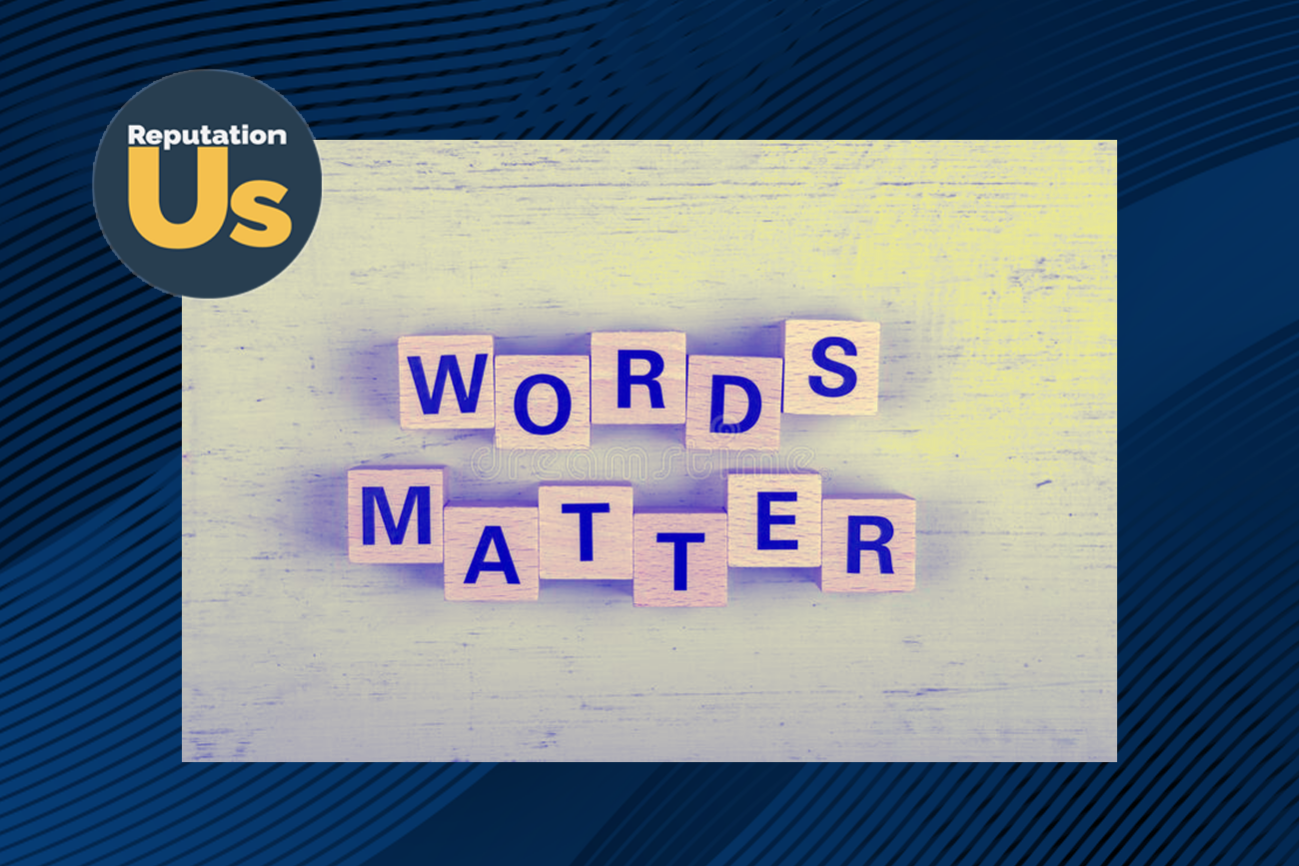The online Power Thesaurus lists 314 Words and Phrases for “Stupid Mistake.” Among them: foolish mistake, dumb move, great error, little flaw, mishap, simple error, tiny problem, brain fart, colossal mistake, aberration and absolutely terrible idea.
The same antonym list offers 138 Opposites of “Stupid Mistake” — less than half the 314 choices for expressing a “stupid mistake.” The discrepancy is appropriate; it is certainly harder to fix a slip of the tongue than to make one! You’d need a good idea, to take appropriate action, make the best choice, a better choice, have a correct solution, or at least a credible solution, make an effective decision, an equitable solution, or find the exact right thing to do.
It is clear when it comes to the nuances of words, what may be a little mishap to one person can be a colossal mistake to another. Words matter.
“Sticks and stones may break my bones, but words will never break me.”
–Old words (circ. 1862):
“We must not escalate; neither with words nor with actions.”
–President Emmanuel Macron of France (circ. 2022)
Politics illustrate how much each word matters. Several off-the-cuff words in an otherwise scripted speech can do serious damage. After President Biden’s speech last week, The New York Times wrote how “nine unscripted words reverberated.” Trump’s repeated use of Twitter and its word limitations often created great controversy.
On a day-to day-basis, how your HR director or executives say something that may seem well-intended can also have serious consequences. Inc. magazine’s collection of 26 Brilliant Quotes on the Super Power of Words provides some thoughtful reflections.
Choosing not to say something says something too, as RepUs has explored in past blogs (1) (2). Your pauses and punctuation must also be thoughtful. Consider this: Do you find inspiration in cooking your family and your dog?
Solving Word Jumbles
When you think through how to make a presentation, proclamation or discuss a challenging situation, choose your words wisely, or don’t say them at all. Here are three tips:
- Be surgical and specific. Every word should convey your meaning accurately. Use the most precise words available for greater clarity.
- Be deliberate and respectful. Language is loaded when used to evoke an emotional response. Don’t make points that spark incitement, controversy or dismay.
- Simplicity. They say less is more, and it’s true. Brevity is key.
With uber-sensitivity the norm right now, word choices can be misconstrued instantly, and take a significant amount of work to undo — if they can be undone at all. It’s hard to put toothpaste back in the tube once the toothpaste is out.
If you or a key player in your organization ad libs something in the heat of the moment that comes out wrong, it is essential to strategize your response in order to rejuvenate staff and customers.
Unfortunately, an awkward or embarrassing slip doesn’t always have an instant fix. It takes time and hard work to reposition yourself and your reputation. First, you must reflect upon the situation to determine how to avoid the same problem in the future.
The RepUs Message Unity Training helps teach your organization’s executives across all departments to be consistent, clear and concise. Our three unique trainings for executives and staff can help you crystalize your messaging, improve articulation and deliver meaningful and memorable information.








